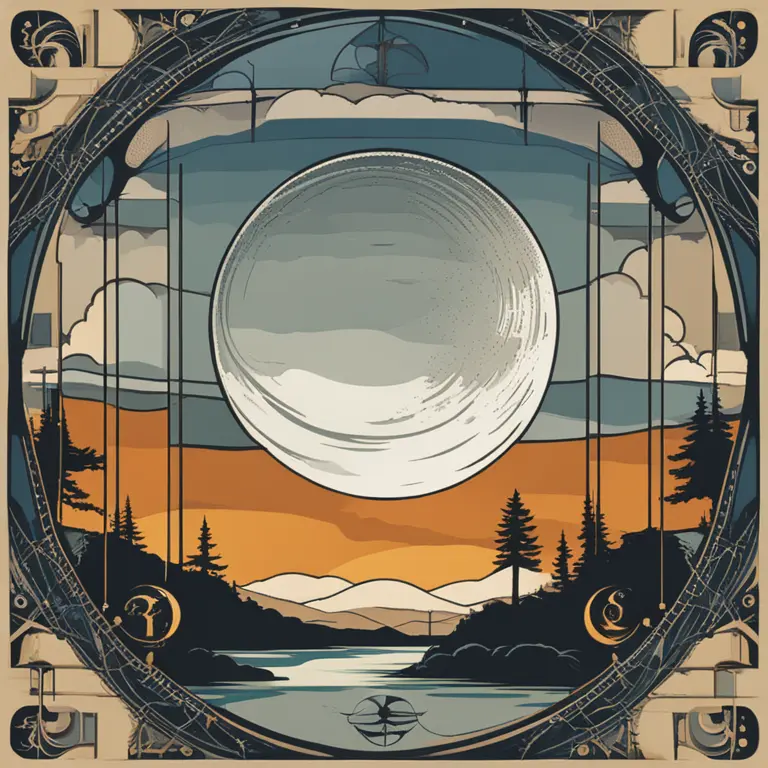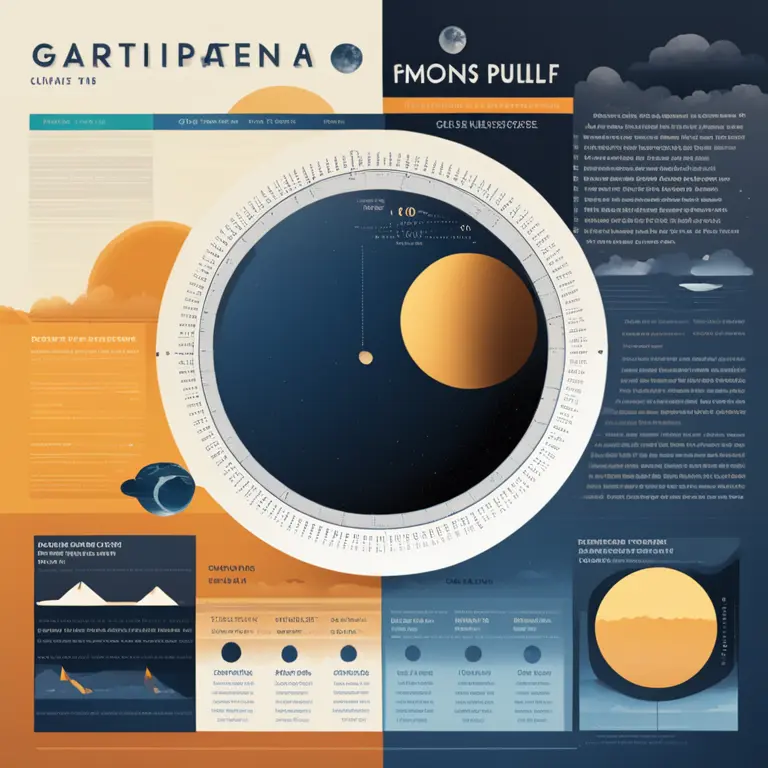
Moon Phases and Their Influence on Weather Patterns
An in-depth look into the scientific discourse on whether lunar phases have a measurable effect on meteorological conditions on Earth.
article by Priya Deshmukh
Introduction to Lunar Influences
The enigmatic moon has always captivated human imagination, often being attributed powers beyond its luminous presence in the night sky. One of the questions that arise when considering the moon's impact on Earth involves the weather. Does the phase of the moon truly affect atmospheric conditions, or is this a mere celestial myth? Blending ancient astrological beliefs with modern scientific scrutiny, we endeavor to unravel the mysteries of the moon's influence on weather patterns.

The Science Behind Lunar Effects
To comprehend the moon's potential influence on weather, it is necessary to explore the scientific principles at play. The moon exerts a gravitational pull on Earth, most notably resulting in ocean tides. While it's a leap from tides to weather, some scientific theories suggest that since the atmosphere, like the ocean, is a fluid, it might also experience subtle shifts due to lunar gravitation. However, the consensus within the scientific community is that these effects are minimal when it comes to changes in the weather.

The Mystique of the Full Moon
The full moon, in all its glory, is often cited as a time of heightened weather activity. Astrological forecasts for 2024 and beyond even hint at the possibility of more pronounced meteorological phenomena during this phase. Nonetheless, meteorologists generally reject this notion, attributing any observed correlations to coincidence rather than lunar causation. As researchers continue to delve into the full moon's possible meteorological impact, the evidence remains inconclusive.

Lunar Cycles and Seasonal Forecasts
Discussions around lunar cycles often venture into their relationship with seasonal forecasts. Astrologers may provide insights into how certain moon phases can align with arduous weather events. Despite an increasing interest in lunar meteorology, especially with horoscope enthusiasts, 2024's scientific evaluations consistently reinforce that lunar cycles do not hold significant sway over seasonal weather patterns.

Lunar Phases: Myth vs. Reality
Separating lunar lore from fact has been a challenging endeavor. Myths dating back centuries, if not millennia, describe various moon phases as omens of weather change. In reality, the search for empirical evidence linking lunar phases to weather outcomes continues to yield little to no substantiation. The moon's phases, while fascinating subjects for astrological dialogue and biorhythm analysis, have not manifested as reliable weather indicators in scientifically controlled environments.
Concluding Thoughts on Lunar Weather Influences
In conclusion, while the moon has undeniable effects on Earth's tides, its influence over weather remains a topic of ongoing debate with little supporting evidence. Current scientific understanding postulates that any weather events coinciding with specific lunar phases are coincidental. As our curiosity endures and research advances, the dialogue concerning the moon's role in meteorology will undoubtedly evolve, potentially revealing new insights into the ancient mysteries of our closest celestial neighbor.
Published: 1/19/2024
Modified: 1/19/2024
More predictions
Come back here soon to learn more about yourself and your future


Behind The Moon Phases Mystique
Delve into the celestial mechanics behind the moon phases and their significance in astrological practices.


Optimal Moon Phases for Successful Deer Hunting
Discover the impact of lunar phases on deer activity and learn when to plan your hunting trips for the best chances at a successful harvest.


Best Moon Phases for Optimal Fishing Success
Discover the optimal moon phases for fishing and how they influence fish behavior, enhancing your chances for a successful catch.